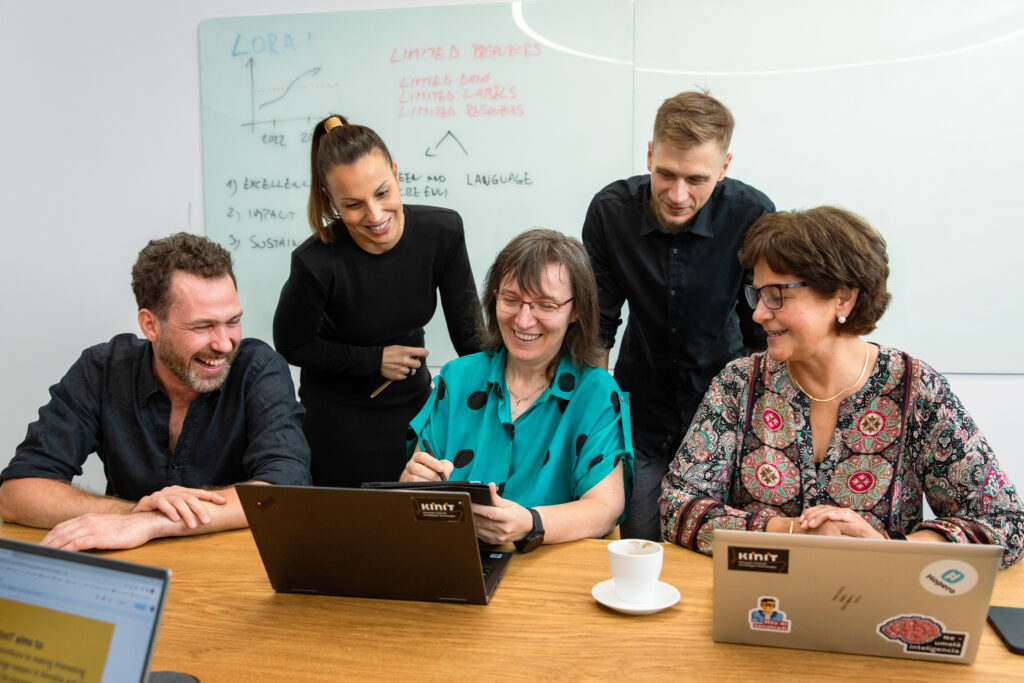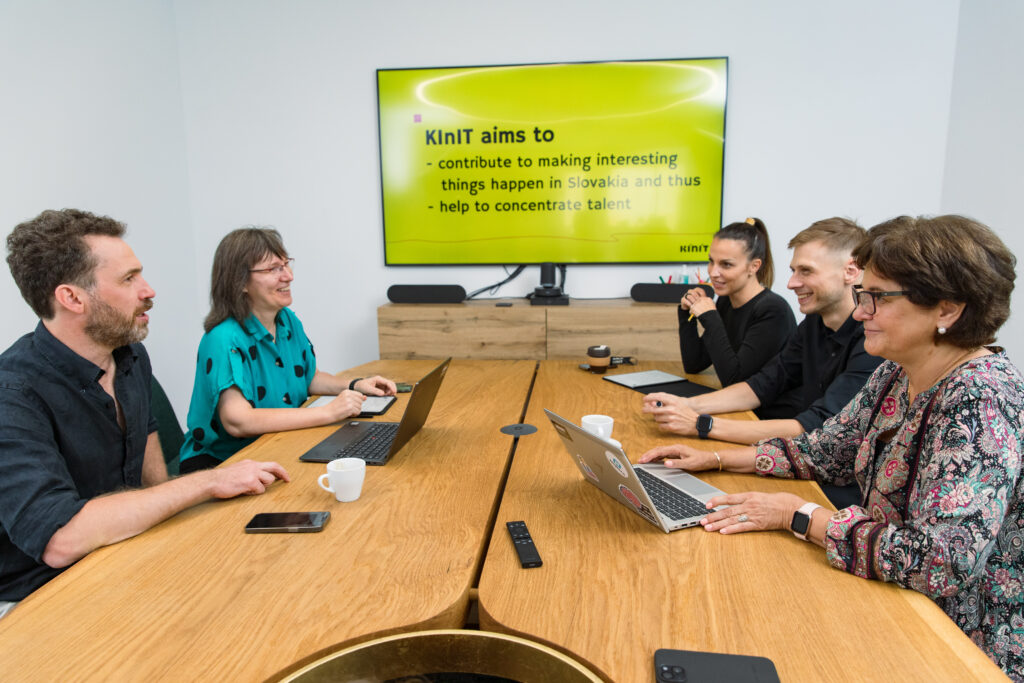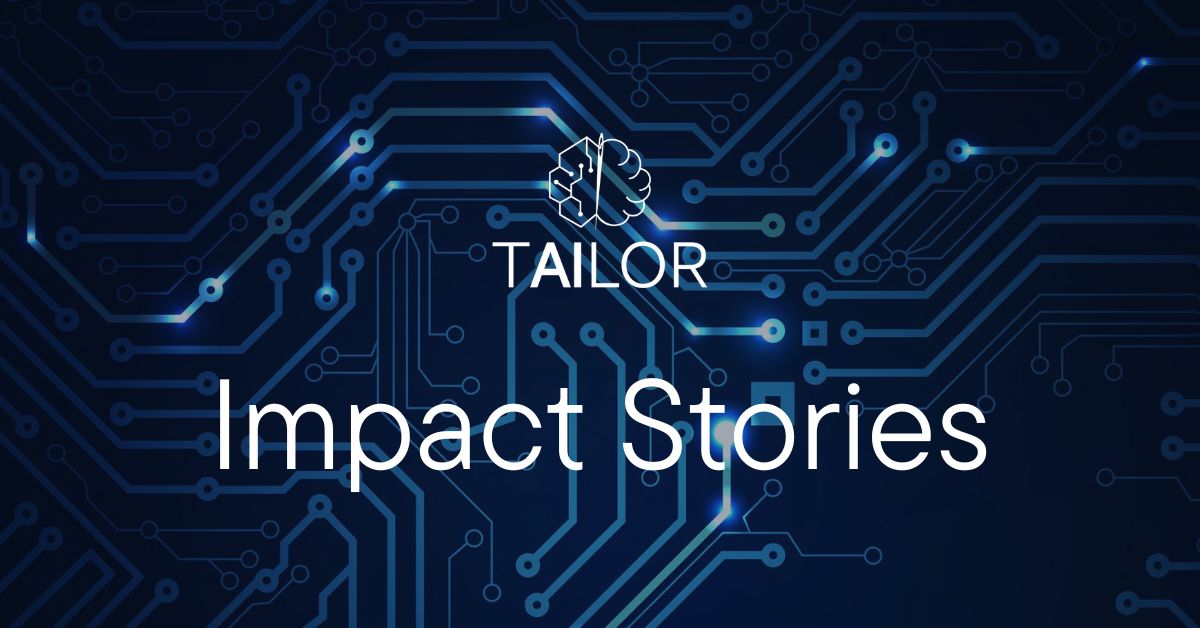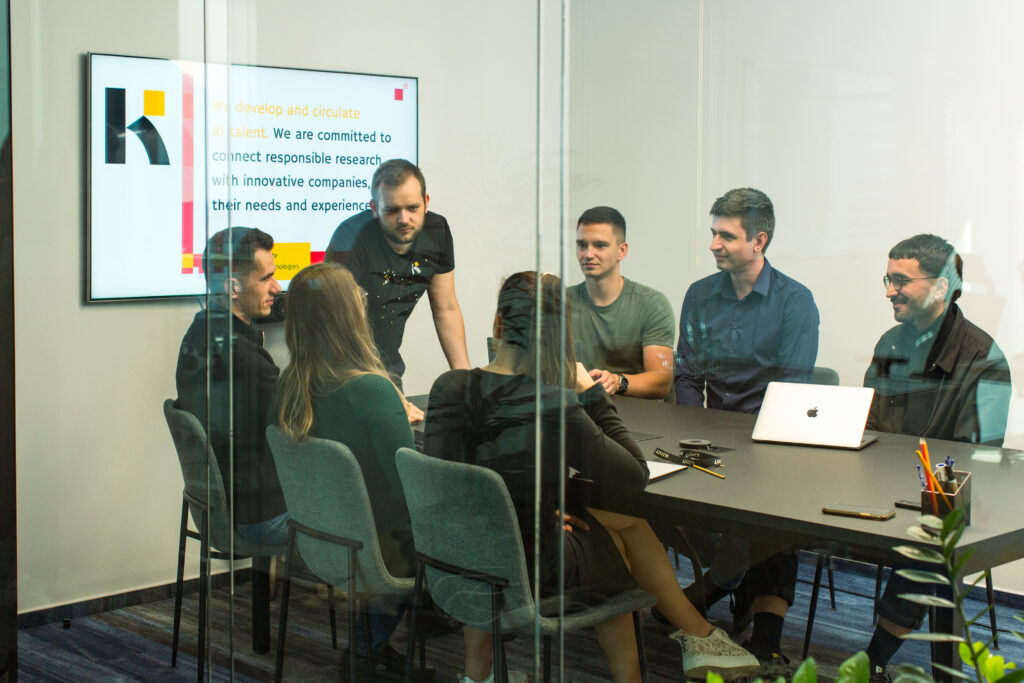To ensure that all members and citizens of the European Union can share the profits generated by deploying AI systems, there is also a need to democratise and decentralise the access to education, research and AI resources. Not only will this make sure that we can catch any talents no matter where they are from, but also that the algorithms being developed are being done so with local considerations in mind, making sure that we get a diversity of models and reasoning going in to them.
One such initiative that has proven greatly successful is the newly founded first independent research institute in Slovakia, the Kempelen Institute of Intelligent Technologies (KInIT), with founder and Director General Maria Bielikova at the helm. Bielikova conducts research focusing on human-computer interaction analysis, user modelling and personalization. Before founding KInIT, she was employed at the Slovak University of Technology for more than 30 years.

Being part of the TAILOR Network has a number of benefits, including collaborators and stakeholder within the EU, as part of the scope of the initiative is to make sure to gather diverse perspective from all over Europe. But for people to have both an informed view on how to shape the future of AI and the technical skills and understanding to participate in doing so, educational institutions and resources must also be locally available no matter where someone grows up or goes to school.
To make sure that Slovakia and Eastern Europe are no exceptions, Bielikova used the know-how from the TAILOR Network as a catalyst. By making sure that the application-driven basic research being done is conducted in close collaborations with the private sector within the region, Bielikova secured the funding that allowed her to start KInIT. The research institute makes sure that local talent has an opportunity to stay and still get to conduct cutting edge research with an international outlook, whilst also tackling local problems in its application.
– Having spent most of my career in academia, I knew the power that comes from being able to bring excellent science to business in order to leverage their resources in a way that ultimately benefits both worlds. So, when I decided to start an independent research institute I wanted to do so in close collaboration with the private sector from the beginning”, says Bielikova, explaining the benefits and opportunities that basic research in industry demanding challenges get from having a business partner.
Our vision for the future is one where we feed and promote innovation with Slovakia, build unicorns and create exciting opportunities.
Maria Bielikova

Extending collaboration to the whole research and innovation ecosystem is key. One area that already brings different business partners together is language. KInIT has launched an initiative to develop large language models for the low resource Slovak language. Even though the companies are competitors, they all see the benefit of having locally developed and fine-tuned AI models.
– Making sure that we secure funding for basic research, which then get practical implications locally, both add value back to the private sector but also gives us use cases that get attention and can attract new talent to the field.This talent may otherwise have left the region to pursue a career elsewhere, says Bielikova, explaining the importance of both providing interesting opportunities and advancing the regions research capabilities.
The fundamental idea of bringing excellent science to industry has proven very successful. From its inception in 2020, aided in part by the TAILOR Network that provided credibility, networking opportunities and part of the funding, KInIT has grown from 20 to 60 people, including 10 PhD students, in the span of just 3,5 years. It has grown to encompass almost 30 collaborators within industry, two industry PhDs, and getting 20 % of its funding from there, and has also emerged as the preferred Slovak AI partner in its domain of expertise.
– Our vision for the future is one where we feed and promote innovation with Slovakia, build unicorns and create exciting opportunities within tech and research through collaborative efforts between academia, industry and governing bodies. Extending that vision to Eastern Europe means having regional collaborations with neighbouring countries combining resources and competencies for stronger AI capabilities. All of which will in turn help the chance of developments of competitive AI models that are true to an open, liberal, free and western society – and our way of life, concludes Bielikova, sharing her hopes and dreams for the future.
About the researchers
Maria Bielikova is the founder and Director General of KInIT. She is also the chair of the Permanent Committee for Ethics and Regulation of AI of the Slovak Republic, and a former member of the High Level Expert Group on Artificial Intelligence established by the European Commission.

